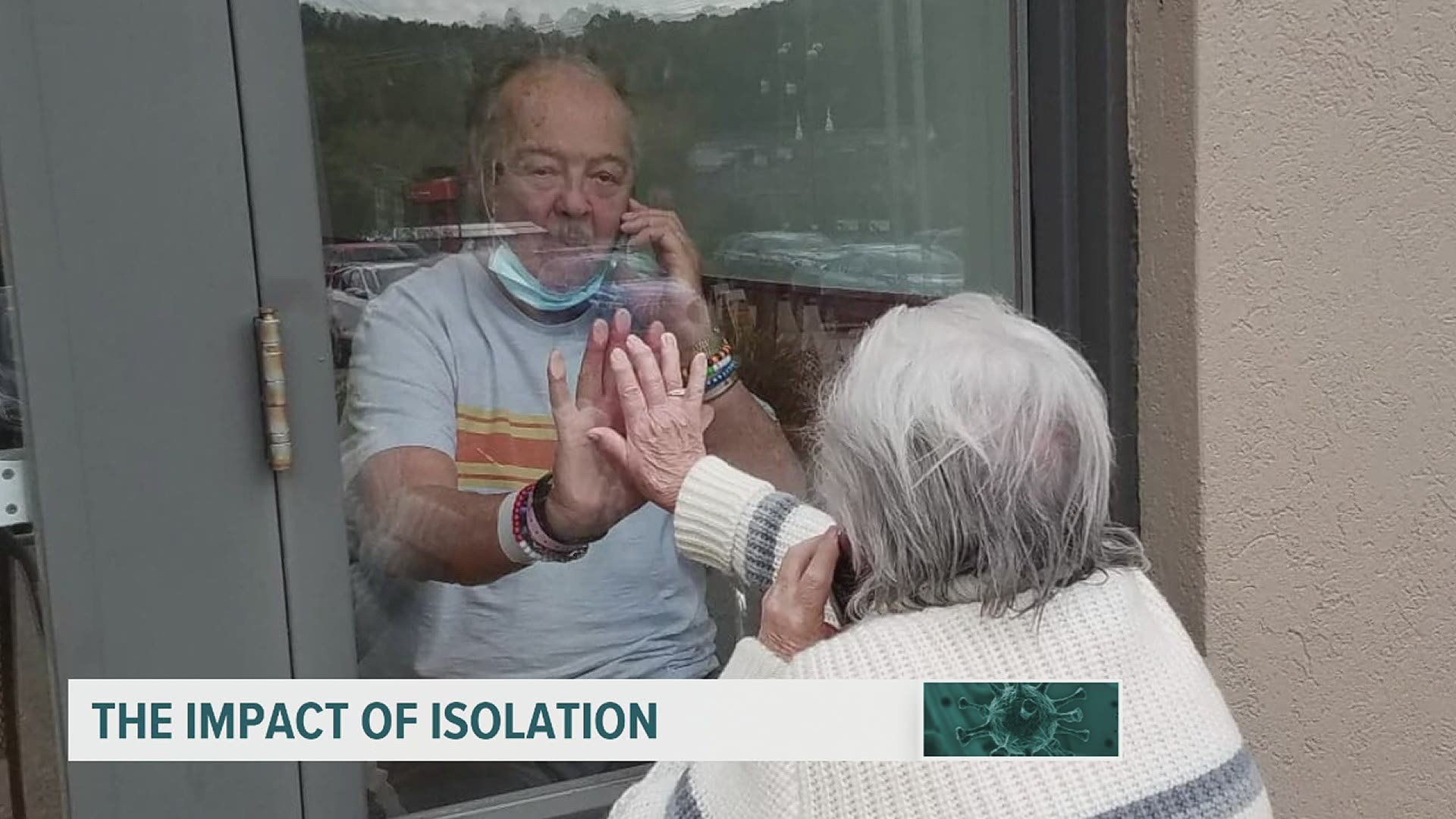JOHNSTOWN, Pa. — Hand to hand on cold glass: A heartbreaking photo shared online captures just about all Rose and Frank Brown have been able to do since the start of the pandemic.
"He cries when I am leaving, and he calls me at least 2-3 times a day," said Rose Brown.
"It has taken a toll on both of them," said Patty Rusnak, their daughter.
Another picture depicts life before COVID-19 clamped its jaws: The couple should've celebrated 44 years together this July and both of their birthdays throughout the year. However, Frank must stay at Beacon Ridge Senior Care in the western part of Pennsylvania due to several serious health conditions. The nursing home's website says it has put a stop to all non-essential visitation as required by the Centers for Medicare & Medicaid Services (CMS). It adds the policy will remain in place indefinitely until further guidance is received from our regulatory bodies and the CDC, which means, for now, it's window visits and 'I love you' through a phone for Rose and Frank.
"Whenever I leave, I try to get down the road a little bit, cause I don't want him to see him cry cause that makes him worse," explained Rose.
Rose is now being treated for depression, and Frank is on the brink of walking out.
"He told me he would much rather catch COVID-19 and die than be locked up like a criminal," added Patty.
"It can be very depressing," said Lancaster Psychologist Jonathan Gransee. "Humans are very social. We need those social connections."
Isolation can leave a long-lasting negative impact, according to Gransee.
"You're not being mentally stimulated as much which can definitely effect cognitive functions, especially if you're elderly," he explained.
He says isolation can also lead to depression which can lead to difficulty concentrating and memory problems.
As for why it's so difficult to reunite residents and their loved ones, Shayna Varner, the director of communications for Pennsylvania Health Care Association says long-term care providers are balancing a number of variables, including: required screening protocols, the number of staff members to support visits, and the positivity rate of covid-19 in the local community. She says providers are following guidance issued by the Department of Health and the Centers for Medicare & Medicaid Services or CMS. It recently encouraged nursing homes to facility more outdoor visits and even some indoor visits but only if there has been no new onset of covid-19 cases in the past 14 days or ongoing outbreak testing. You can read more on its updated guidance here.
"I just can't stand this outside visiting, but I got to get over there to see him to know he's alright," said Rose.
When she finally sees Frank again in-person, Rose said she will give her husband a huge hug and say 'I love you' like they always do.

